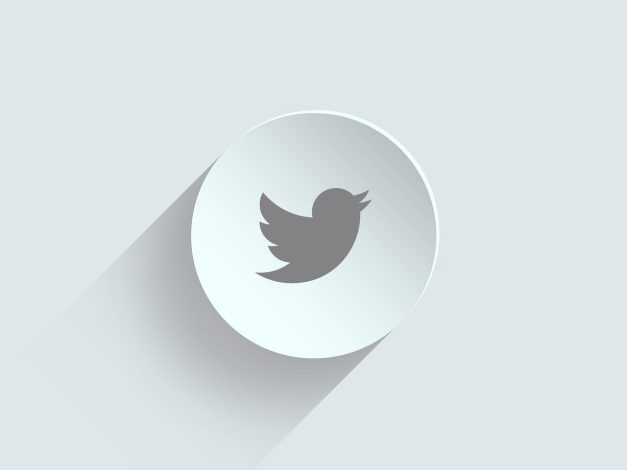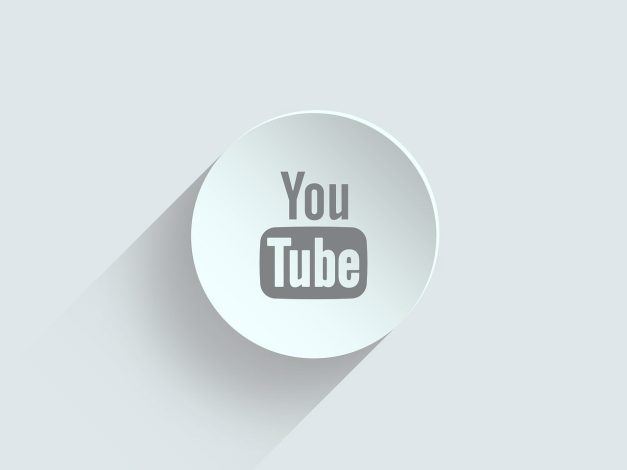Best Social Media Platforms for Authors
The platforms and their best uses...
Which platforms would you use to gain the most exposure? That really comes down to you and what you’re willing to do. Let’s cover the major ones typically used by authors. However, if you have not read PART ONE of this article, please feel free to check it out too at the button below.
WORDPRESS:

Creating an author website is the first step. When people hear your name for the first time, they are going to do an internet search. So be searchable. Let your website be the top link when the search results populate. Think of your author site as the foundation on which you expand out into the fast web. Your site doesn’t need to razzle and dazzle people, but it does need to look smooth, be easy to navigate, and constant the following information:
- Your author photo
- Your author bio
- Links/Purchase options for your book(s)
- Newsletter sign-up
- Contact info
Optional items on your site can be...
- A blog
- Upcoming events
- Merch store
WordPress is one of the more versatile options when it comes to creating an author website, but there are others out there such Squarespace, Weebly, Godaddy, and so on.
- Pro: Everything about you is found in one place!
- Con: You have to manage the site and pay for all fees related to web hosting. If you opt for a free option, you will lose out on some of the professionalism typically found in the paid for service, so do so at your own discrission. Track your expenses for tax season.
- Blogger Advice: You will be inclined to find the perfect theme which represents the essence of who you are as an author. Stop that. Pick one you like, can easily work with, and move on. There are other more important things to do than to try and figure out if Serif Old Style or Sans Serif Grotesque font represents you better.
Fantasy Quote:
J.K. Rowling
"Of course it is happening inside your head, Harry, but why on earth should that mean that it is not real?"
NEWSLETTERS:
I mentioned newsletters as part of your author website, which I know some of you may have scratched your head at. The reason why I mention it is because people who sign up for your newsletter have an invested interest in you. Most folks don’t like to get junk in their mailboxes, so the fact they gave you your email is a pretty big deal. This is a direct line of communication with others, so make sure to foster it.
- Pro: Direct access to an individual who are invested in you.
- Con: Getting people to sign-up. You will have to provide some incentives for why folks give you their precious email address. Also, if you use a service like MailChimp or Privy, you’ll have to learn how to use it in order to get the most out of it.
- Blogger Advice: Have newsletters come out monthly, not when you have something to sell. Let your subscribers have the inside scoop of what you are up to or the behind-the-scenes info or covering upcoming events. This is your special club, so give them a few perks no one else gets.
PODCASTING:
I frequently say I am not a podcast person, but I have found myself listening to them when I am driving, cleaning, or doing anything that doesn’t require my full attention. You can find a podcast on just about any subject out there from grammar to new developments in genetic science.
- Pro: If you aren’t big on writing a blog, a podcast may be more in line with your preferences since it allows you to get your message across without worrying about typos or sentence flow.
- Con: Hosting a podcast can get hairy if you are not used to it. And then there is purchasing the equipment for it: sound dampeners, editing software, etc. Also, no one will listen to your podcast if they don’t know it is there, so you still need to get the word out via other channels.
- Blogger Advice: If you are going to do a podcast, do it about something you are passionate about. If you are in this simply to get followers and are picking up topics others are doing, you won’t have fun. This is a time investment, so spend your time doing what you enjoy. Keep your theme consistent regardless.
TWITTER:

Twitter is a great tool when it comes to networking and having a direct line of communication. If you enjoy writing profound or witty messages in less than 280 characters, then Twitter is for you.
- Pro: Very easy to meet other people and establish a network.
- Con: Hashtags have to be included or others will have a hard time finding you. Also, tweets happen fast and it can be easy to miss things if you aren’t paying attention.
- Blogger Advice: Try to avoid following people just to have them follow you back. Tweet about things you like and reach out to the community. #writingcommunity #amwriting #amediting will be your friends on Twitter. Engagement is important since you are looking to build up a community. If people notice you are in it for the numbers, they will drop you.
FACEBOOK:

Pretty much everyone has a Facebook account these days. Regardless of what your views on Facebook are, it does have some features in it that will make it easier to work with groups, fan pages, clubs, set-up events, reminders, and network in general.
- Pro: Being connected with your audience and friends via a network the majority uses.
- Con: The algorithms of Facebook constantly change and sometimes it posts things in chronological order or in the order of most engagement. This can cause whatever post you create to be missed.
- Blogger Advice: I enjoy using Facebook for clubs, the team helping spread the word of your book, and events. Since the majority of folks have this, it makes arranging those easier and I would recommend utilizing Facebook for that purpose when you can.
YOUTUBE:

Just like Facebook has a huge reach, so does YouTube. There are a ton of people who use YouTube either for tutorials, funny cat videos, news, etc. More than one author has an “Authortube” channel in which they talk about writing, the coming events, or happenings within the writing community. Plenty create vlog videos, share recordings of speaking at panels, updating their fanbase on how their current project is going, or may even talk about other books they are reading. I engage with a group of lady authors who live stream daily while they write.
- Pro: This can be very rewarding once you are used to working with this platform. It makes easy communication and the fact you can embed the videos into pretty much anything makes it very versatile.
- Con: There are strict guidelines being enforced which can cause your video to not be popular in search results. Just like you need equipment for podcasting, you’ll need that and more for creating YouTube videos since people will also be able to see you. You’ll have to worry about the location you film in, make sure you brushed your hair, and create a video that is visually engaging.
- Blogger Advice: If you are a socially awkward person, you may not like sitting in front of a camera and talking to people you can’t see. But, once you get a system down, recording and editing videos is painless.
INSTAGRAM:

If you’re the type that enjoys the idea of “a picture is worth a thousand words,” then you will likely enjoy Instagram. Of all the social media options, my favorite is Instagram because I am a visual person. There is also a feature built in where you can share your images with Facebook, Twitter, and Tumblr, so you don’t have to worry about reposting. It’s been changing where people can upload videos and broadcasts. I am curious to see where this platform will go in the coming years.
- Pro: Get to visually present content to your audience.
- Con: Very little visibility without the use of hashtags and if you post too often, you can get whitelisted.
- Blogger Advice: You can only post so many pictures of you sitting at your keyboard writing. There is nothing wrong with mixing up your author life with other things you enjoy such as hiking or selfies with your dogs.
Honorable Mentions...
These are honorable mentions because I haven’t seen these produce great results for authors, but they can be fun to work with.
GOODREADS:
GoodReads allows you to have the option to create an author account and claim your books. It is also a place where readers can reach out to you and ask questions allows you to do giveaways for your book. The reason I have it in honorable mentions is because the site is primarily for readers, not for authors. When you see someone posted a negative comment about your book baby, the temptation to respond to them is strong (and can damage your career).
TUMBLR:
I haven’t visited Tumblr since the TOS changed last Dec in regards to what is allowed to be on the site and what isn’t. The reporting system which labels content as “explicit” is still wonky. It is a good site if you want to have a blog without the hassle of maintaining a website. Some folks enjoy posting their free samples on there, which can work and allows others to share it.
PINTEREST:
I’ve heard of Pinterest being used by authors, but it is more in the line of being used as an aesthetic board. I created a board myself for the purpose of creating my cover since I wanted to have a collection of reference images to give to the designer. As an author, it doesn’t do a lot for me outside of that.
Best practices with Social Media...
I’ve given you a list of possible platforms to use, but you are not required to use all of them. I’d say pick two or three you feel are easy to work with and stick with those (unless your publisher tells you otherwise, then you do what they say). If you try to do all the options out there in the web, you will be spending more time working with that than actually doing what you want to do: write.
If you do decide to juggle multiple platforms at once, make sure you have a good time management system in place and an idea of what you want to post in the future. As someone who learned the hard way about what to do with social media, I promise planning out the next one to three months will do a world of good. It also doesn’t hurt to have a service like Hootsuite or Buffer to help you set up your social media ahead of time. I’ve also seen a team of people utilize Trello to organize and prepare their social media.
Engagement will be important as you progress. People are looking to talk to you, hence why it is called SOCIAL media. A good rule of thumb is to spend about twenty to thirty minutes reading what others have shared, talking to them, or leaving comments. This is another reason why I advise against juggling too many platforms since the time adds up fast. I’d avoid comments such as “Great stuff, go like and subscribe to my page, please” since that leaves the impression you don’t care about the person, just that they follow you.
A word of caution...
Impressions are important and the last thing you want to do is create a less than appealing image of yourself. Just like the job industry will look you up after submitting your resume, publishers will scout your social media to see what face you are showing the public.
There are authors who have lost out on contracts because of how they conduct themselves on the internet–antagonizing people, insulting others in the industry, or posting controversial statements. What you decide to do with your social media is up to you, but if you think that it may ruin your chances of getting published, consider not hitting that submit button.
You will be approached multiple times by various groups to help “increase your influence” and “expand your follower count.” These are individuals looking to sell you a bot service which will give the impression that there are more people following you than there are. Do not engage in this. These bots are not going to purchase your book and it looks really bad when your follower count takes a nosedive when the bot accounts are terminated. Focus on forming relations rather than building numbers.
My personal experience...
Nov 2018, Eight Little Pages Publishing offered me a writing deal. I was thrilled, excited, and giddy for days. When my contract was sent for signing, I read it over with my husband and he pointed to the part which made my stomach clench–my requirement for my online presence. There would be a website, a newsletter, and I needed to post on whichever social media I chose at least three times a week (which actually isn’t bad).
At the time, my Instagram following hadn’t even hit a hundred. I didn’t understand the importance of hashtags and the idea of doing anything with Twitter left me dizzy.
I had to do it, but I didn’t know how. So, I did what any overachieve grad student would do and research the living hell out of the topic for a week. I watched every skillshare video, read endless blogs, listened to multiple podcasts and even bothered my friend who worked in marketing. Books on the topic piled high outside beside my bed and soon became littered with my scribbled notes and highlighter. On top of that, I also studied the pattern of several successful YouTubers and influences to see how they engaged with their audience.
Since then, my connections on social media has jumped up, I’ve made multiple connections with various people around the world, and I enjoy popping onto Twitter to see what folks are doing.
My followers didn’t jump up into the tens of thousands overnight, but you shouldn’t go into social media for the numbers alone. Followers come in time so long as you are active and engage with others. One piece of advice I heard repeatedly is to focus on the connections you can make before your sale.
Final thoughts...
Social media is intimidating. Every platform has its own environment, pitfalls, and various methods to engage with others. Regardless of what you select, don’t approach it as just another part of your “job.” Looking at it as a way to connect and befriend others will giving you a lot more satisfaction than seeing it as something you have to do.
If you are someone who frequently engages in social media, what is a suggestion you can give to those looking to engage for the first time?
Interested in learning more about social media? Here is a list of six great books to start from:
Carrow Brown, author of Queen of Swords and Silence, is a military vet living in sunny Arizona with husband and dogs. She devoted to writing that both entertain and invoke thoughtful questions. She is bribed by tacos and always looking for a book recommendation.









